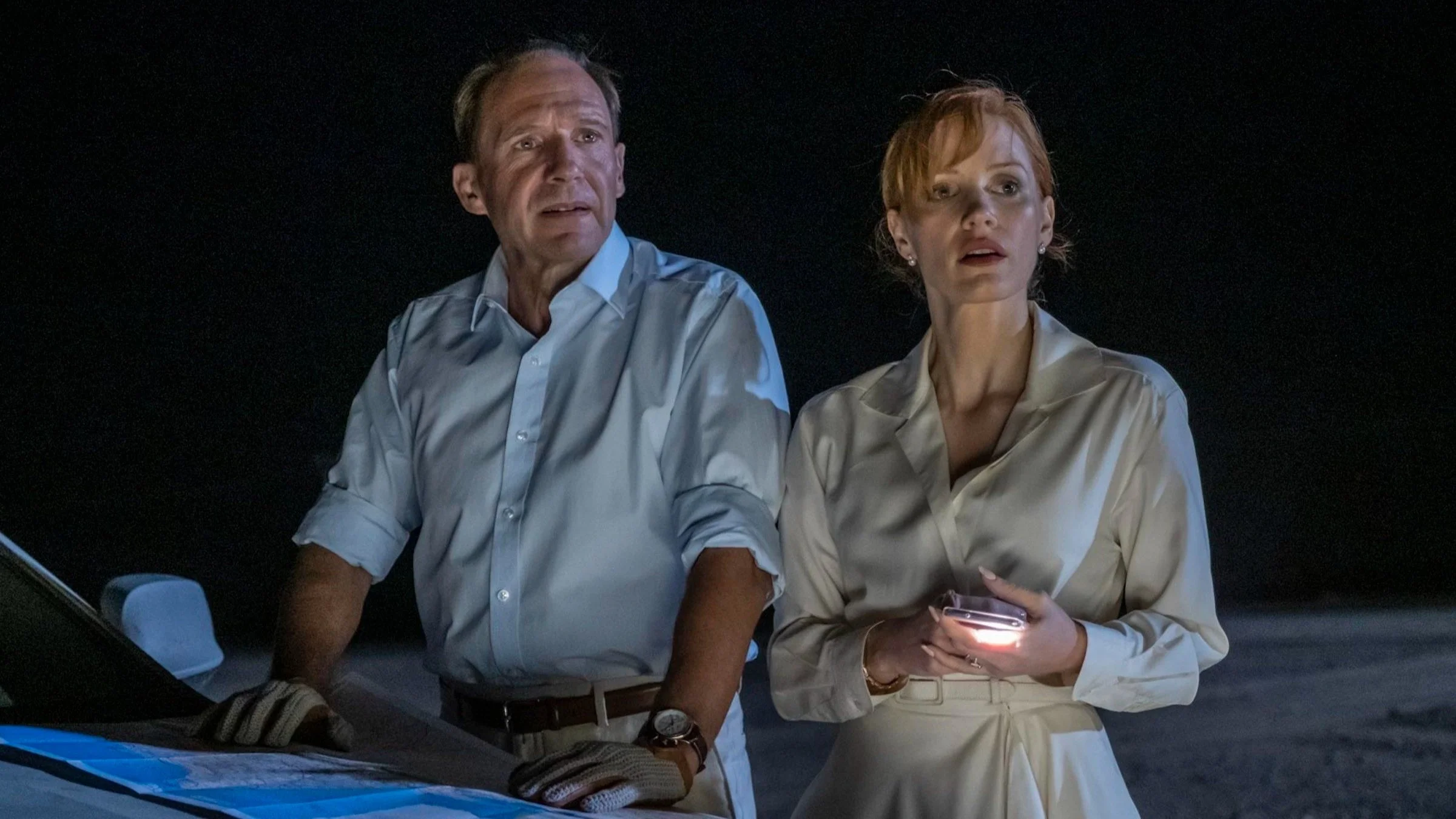The Forgiven
John Michael McDonagh re-examines the colonial experience in a corner of the Sahara that is not what it once was.
An impatient Englishman: Ralph Fiennes, with Jessica Chastain
One never quite knows where Ralph Fiennes will turn up next. In an Ibsen at the Old Vic, behind the camera in Serbia and Russia, or as a staple of a cinematic franchise. And yet, at 59, he retains the leading man features he displayed in such films as The English Patient and The Constant Gardener, in which he played flawed, vulnerable Brits on African soil. He’s equally at home in scene-stealing supporting turns, such as the hapless film director in Hail, Caesar! and as the manic crime boss in In Bruges. In the latter, written and directed by Martin McDonagh, the brother of John Michael McDonagh, he was side-splittingly funny, channelling the spirit of Leonard Rossiter. The Forgiven, as with the actor’s previous stints in Africa, is based on a highly acclaimed novel (Lawrence Osborne's lean thriller of 2012), and comes with both the virtues and failings of such an adaptation.
Pictorially descriptive and rich with hidden layers, it achieves a tension that it sustains throughout. As the dark shadow of colonialism lingers in the Moroccan desert like a shifting sand dune, new forces are at play. While exuding the gin-soaked, sweat-stained khaki wear of a Graham Greene title, this is set in the present day, where the last vestiges of political impropriety runs riot. Fun is poked at Johnny Depp (the all-new, bloated version) and Prince Andrew, while the Brits behave as if they still ruled the world. Ralph Fiennes is David Henninger, a cynical, supercilious and highly-functioning alcoholic, who, as a society doctor saves lives for a living, if not always successfully. His wife Jo (Jessica Chastain) is a beautiful, bored American who used to write children’s books, but who hasn’t put pen to paper in seven years (instead, she reads André Gide). Their marriage is in stasis and they represent the frayed cusp of a civilisation teetering on the edge of collapse. Then on the way to a lavish weekend party in the desert (hosted by Matt Smith’s camp dilettante) – and clearly the worse for drink – David runs down and kills a Berber boy. It is a terrible accident, but David’s initially nonchalant attitude to the tragedy (“the kid was a nobody”) leads to a disturbing chain of consequence. But can he be forgiven?
As to be expected from a filmmaker of John Michael McDonagh’s pedigree – he previously directed The Guard and Calvary – The Forgiven is a masterclass in articulate cynicism, and is by turns disquieting, sardonic and unforgiving. Here, in a remote haven of the Sahara, the decadent dregs of a privileged society speak their minds in the presence of a culture they are insensitive to. Nonetheless, the literary shackles remain, and for all the dramatic restraint and serrated dialogue – not to mention the spectacular vistas of the Sahara – the film is marooned in a cerebral neverland. It’s always rewarding to watch fine actors play complex, defective characters, but ultimately The Forgiven fails to surprise or to absorb on any meaningful level.
JAMES CAMERON-WILSON
Cast: Ralph Fiennes, Jessica Chastain, Matt Smith, Ismael Kanater, Caleb Landry Jones, Abbey Lee, Mourad Zaoui, Marie-Josée Croze, Alex Jennings, Saïd Taghmaoui, Christopher Abbott, Briana Belle, Imane El Mechrafi.
Dir John Michael McDonagh, Pro Elizabeth Eves, John Michael McDonagh, Trevor Matthews and Nick Gordon, Screenplay John Michael McDonagh, Ph Larry Smith, Pro Des Willem Smit, Ed Elizabeth Eves and Chris Gill, Music Lorne Balfe, Costumes Keith Madden.
House of Un-American Activities/Brookstreet Pictures/LipSync/Film4/Head Gear/Metrol Technology/Assemble Media-Universal Pictures.
117 mins. UK/USA/Canada. 2021. US Rel: 1 July 2022. UK Rel: 2 September 2022. Cert. 18.


